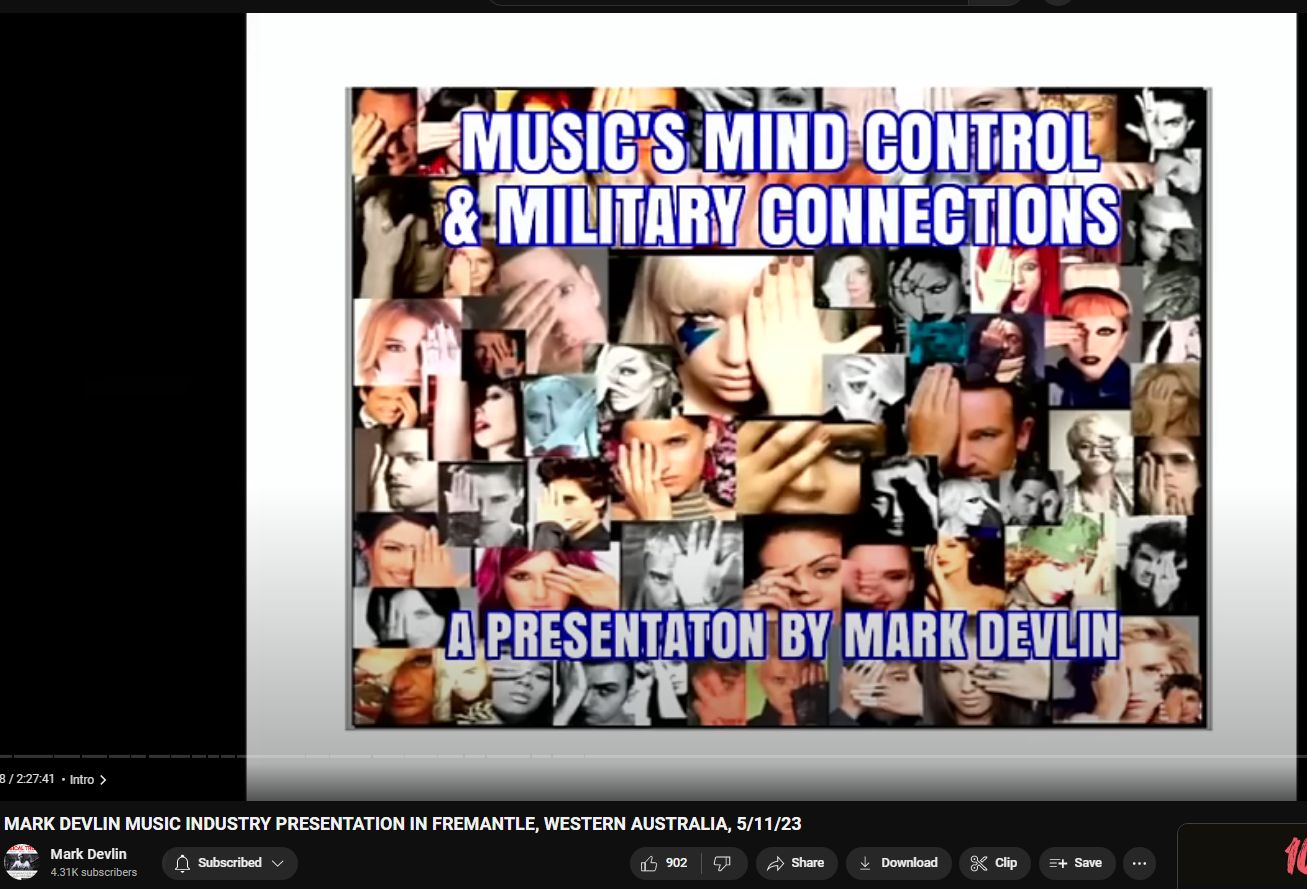Music’s Mind-Control and Military Connections
Why should there be any kind of connection at all among music, mind-control and the military, if music is all about entertainment?
The world is the way that it is, is because it has been set up to be that way.
Governments don’t run nations; they all answer to higher powers.
From the video comments:
“Easily the best presentation of the nefarious music industry that I have ever seen.”
“I’ve been researching this stuff for over 50 years and still learning. Nice work brother.”
Mark Devlin, a British DJ and author, explores the intriguing and often controversial subject of music’s connections to mind control and the military in his work. His research delves into the concept that the music industry is not just an entertainment sector but also a medium for psychological manipulation and a vehicle for military and intelligence agency agendas.
Music’s Mind-Control Connections
Devlin discusses how music can be used as a tool for mind control, influencing the thoughts, emotions, and behaviors of individuals and masses. This manipulation can be achieved through various means, including:
– Lyric Content: The use of specific themes, messages, or subliminal suggestions in song lyrics.
– Sound Frequencies: The employment of certain sound frequencies and tones that can affect brainwave patterns, potentially altering mood, cognitive functions, and even physical health.
– Repetitive Patterns: Repetitive beats and rhythms that can induce trance-like states, making listeners more susceptible to suggestion.
Military and Intelligence Agency Involvement
Devlin’s work also suggests that there have been connections between the music industry and military or intelligence agencies, particularly in the context of cultural engineering and psychological operations. He points to historical instances and patterns where music and musicians appear to have been used to promote political agendas, social movements, or behavior modification. These connections include:
– Recruitment of Musicians: Allegations that some musicians and bands were directly recruited by, or associated with, intelligence agencies to influence popular culture and youth movements.
– Propagation of Counter-Culture: The suggestion that certain music genres and movements, especially those emerging in the 1960s and 1970s, were engineered or co-opted to drive societal changes or to destabilize certain social orders, in line with broader geopolitical strategies.
– Use of Music in Psychological Warfare: The strategic use of music in military operations to disorient, demoralize, or control adversaries, as well as to rally troops and build camaraderie among them.
Critiques and Controversies
While Devlin’s theories are compelling and have gained a following, they are not without their critics. Skeptics argue that the evidence for some of his claims is circumstantial and that the music industry’s connections to mind control and military agendas might be overstated or misinterpreted. The counter-argument is that while music undoubtedly has a powerful impact on society and individuals, attributing this influence to a deliberate, widespread campaign of control and manipulation by intelligence agencies and the military might be an oversimplification of more complex cultural dynamics.
Conclusion
Mark Devlin’s exploration of music’s mind-control and military connections invites a deeper examination of the role music plays in society. Whether one fully subscribes to his views or not, his research raises important questions about the influence of the music industry, the potential for auditory manipulation, and the extent to which external entities, including state and non-state actors, might exploit music for specific agendas. His work serves as a catalyst for broader discussions on media influence, cultural manipulation, and the unseen forces shaping popular culture.
Mark’s books:
